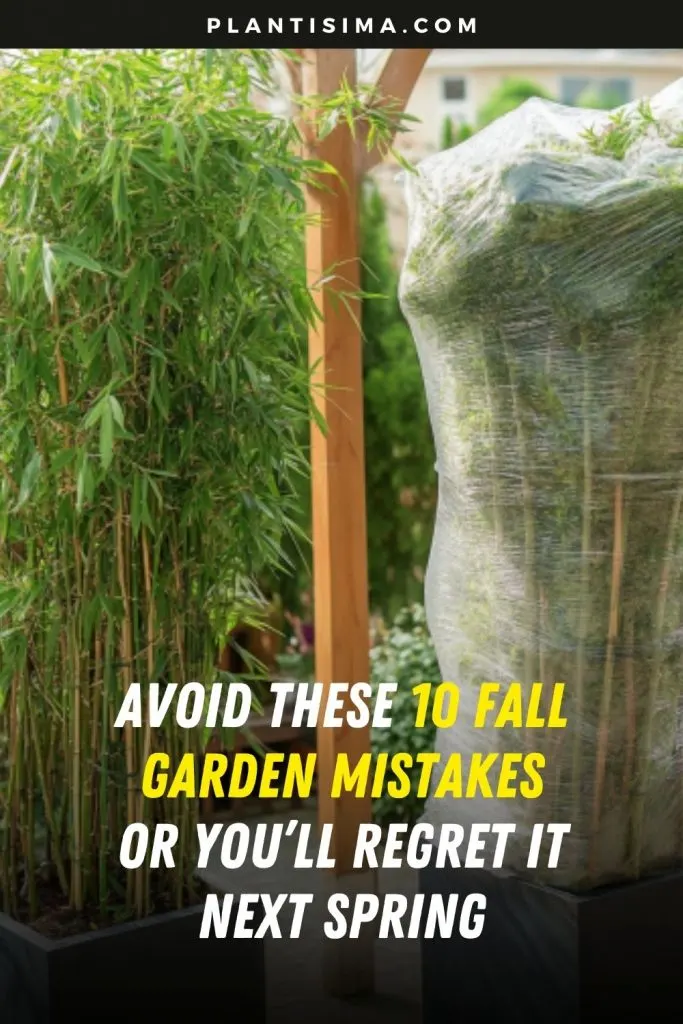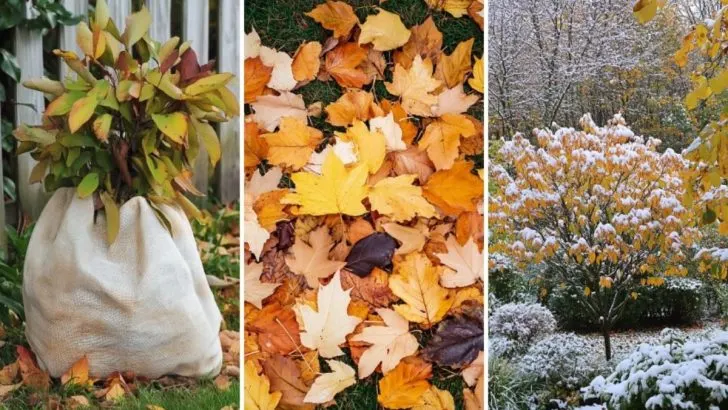Fall is here, and I know the temptation to kick back and call it quits is strong. After a season full of weeding, watering, and endless to-do lists, the thought of hanging up your gardening gloves is a sweet one.
But hold on just a second – before you stash your tools and say goodbye to your garden, there are a few common mistakes you might want to avoid.
Trust me, if you skip these now, next spring could be a whole lot tougher than you’re hoping for.
Here are the 10 biggest fall garden blunders that could haunt you next season:
1. Planting Too Late in the Season
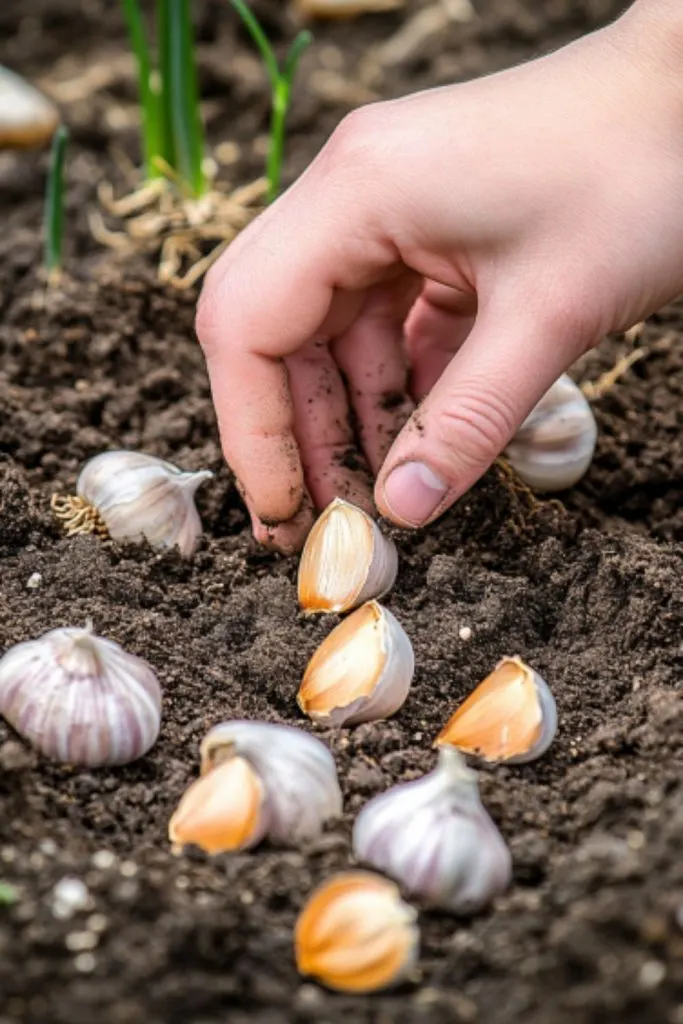
Fall is great for cool-weather crops like kale, lettuce, and root veggies, but timing is everything. These veggies can stand up to a light frost, sure, but wait too long, and they’ll be taken out by a hard freeze.
Onions and garlic? Those are fall-planting champs, but even they need a head start. If you plant them too late, they won’t have time to toughen up before winter hits.
Pro tip: if you missed the window for fall planting, don’t sweat it. Garlic can wait until spring – but don’t make a habit of it if you want a bumper crop!
2. Ignoring Soil Health Before Winter
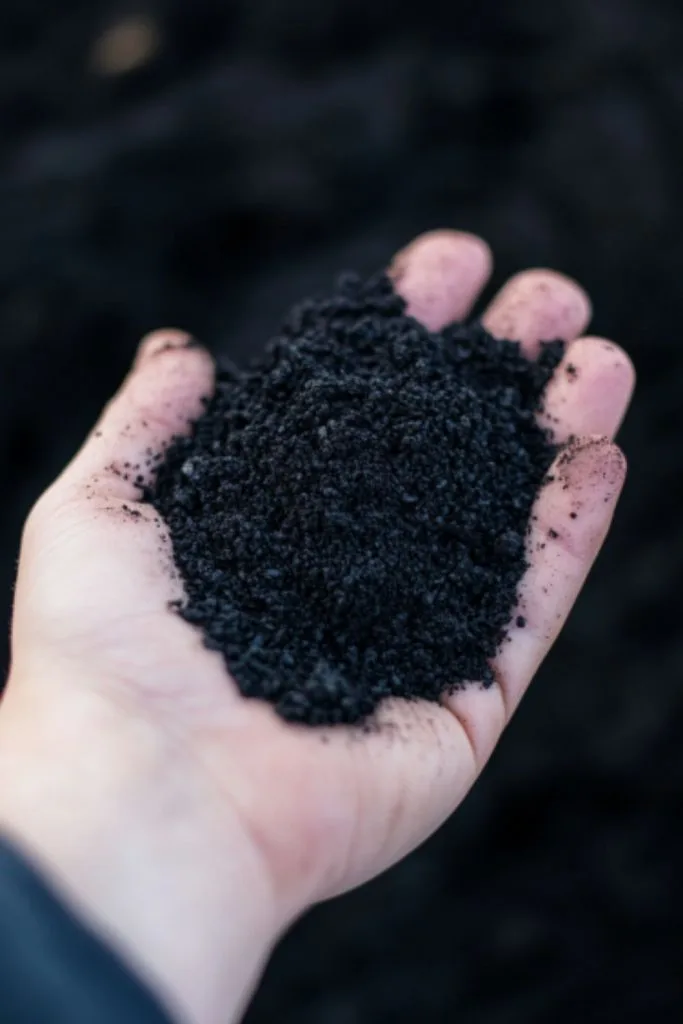
Your soil has been working overtime all summer, feeding those plants and holding everything together. It needs some love too!
Fall is the perfect time to add amendments like compost, leaf mold, or biochar. By doing this now, you give these organic materials time to break down and enrich your soil over winter, setting you up for a strong start come spring.
Think of it as a spa day for your dirt.
3. Giving Weeds the Winter Off
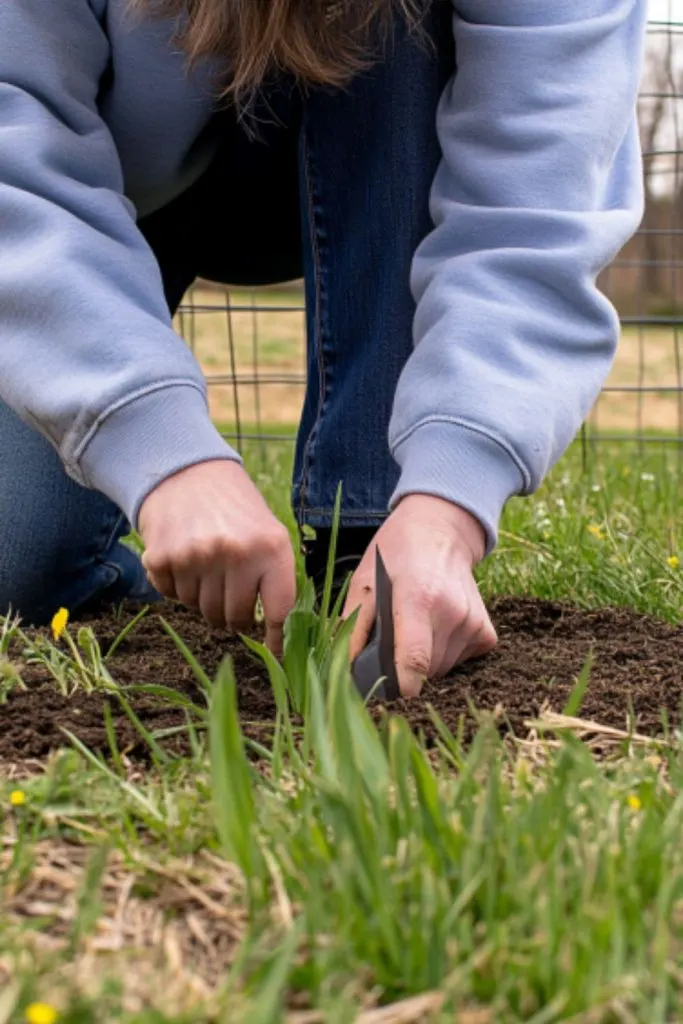
It’s easy to stop weeding once your plants are done for the season, but those pesky weeds don’t take a break.
They’re like the villains of the garden world – always lurking, ready to take over when you’re not looking. If you let them hang out, they’ll hunker down, spread, and come back with a vengeance in spring.
Do your future self a favor: keep weeding through fall, or better yet, move on to mistake number four…
4. Skipping the Mulch
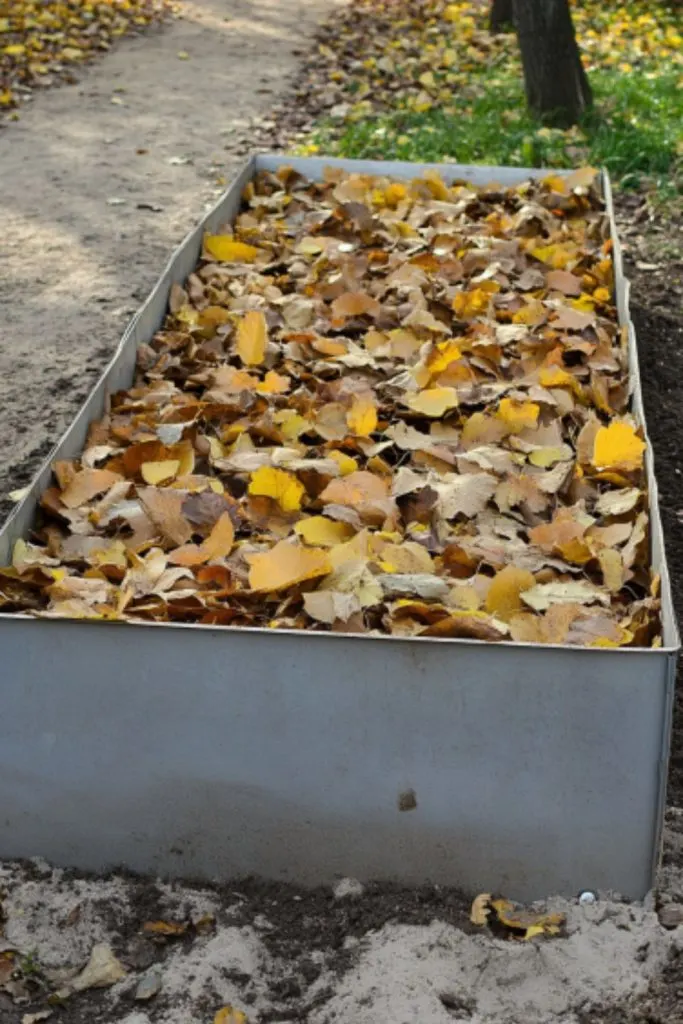
Bare soil is a big no-no, especially during winter. Not only does exposed soil invite weeds, but it also sets you up for erosion and nutrient loss.
A thick layer of mulch – whether it’s leaves, straw, or even compost – will lock in moisture, prevent erosion, and keep those weeds from sneaking in.
Plus, when spring comes, your soil will be healthier and ready for planting.
5. Letting Leaves Pile Up on Your Lawn
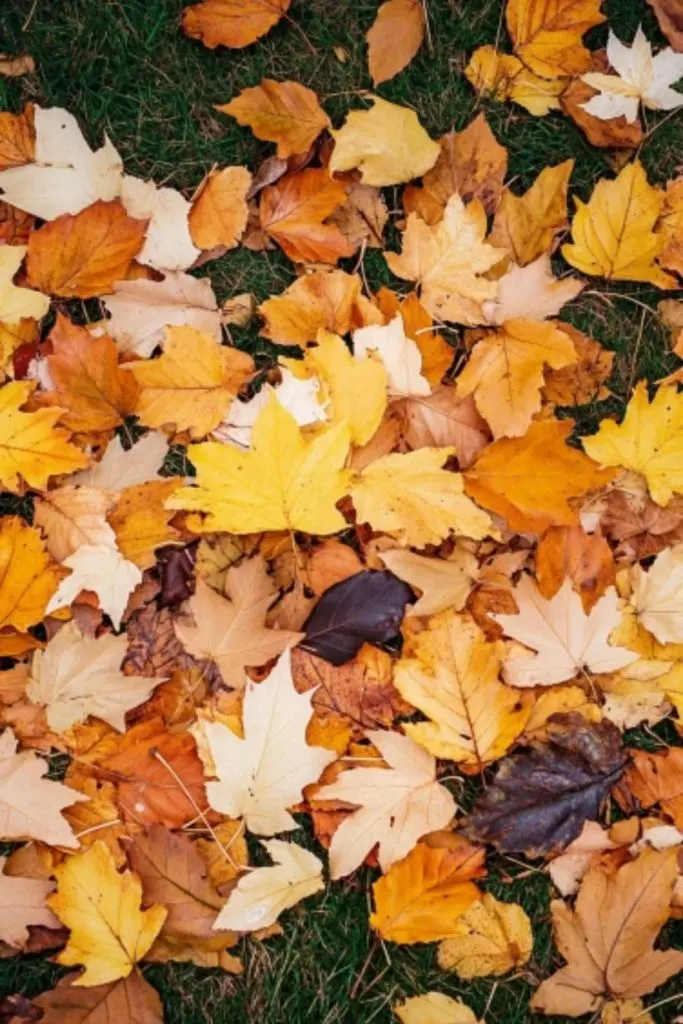
Sure, those crunchy leaves are fun to jump in, but letting them rot on your lawn isn’t the best idea. They can smother your grass, leaving dead patches that invite weeds to take over.
If you’re aiming for that tidy, lush lawn, either mulch the leaves with your mower or rake them up and use them in your garden. Your lawn and your neighbors will thank you.
6. Neglecting Tender Plants
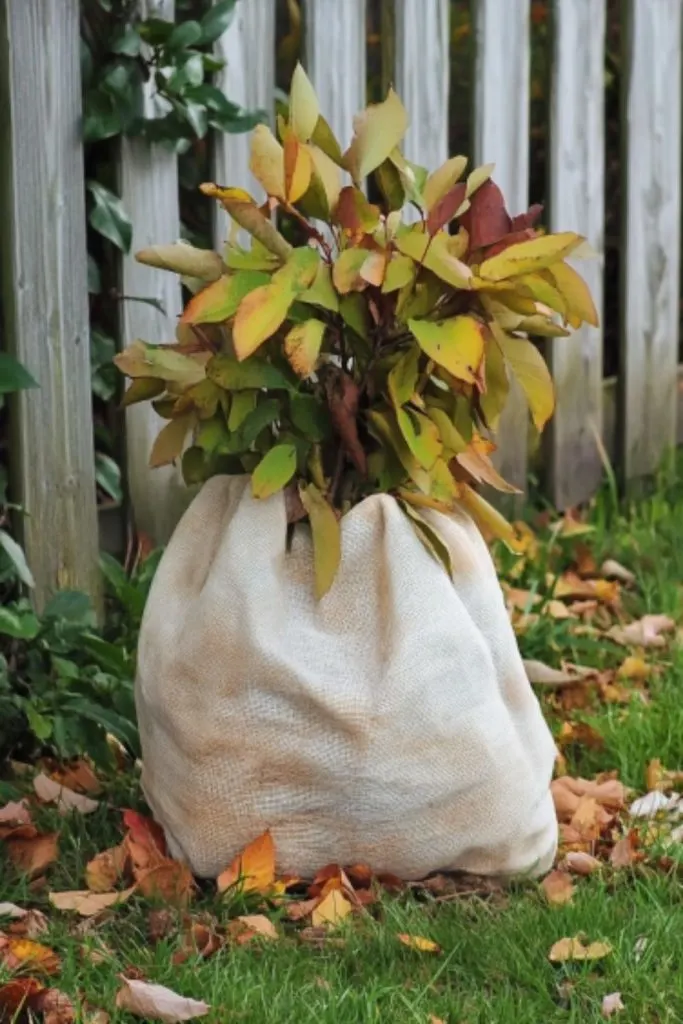
New shrubs, bushes, or hedges are like babies – they need extra care. These plants haven’t fully established themselves yet, so leaving them unprotected during winter could spell disaster.
Make sure to wrap or insulate tender plants to protect them from harsh winter winds and frost.
Not sure if your plants are vulnerable? If they’re new or a little more exotic for your zone, they likely need some extra TLC (no blankets required, just burlap).
7. Leaving Plants to Rot in the Garden
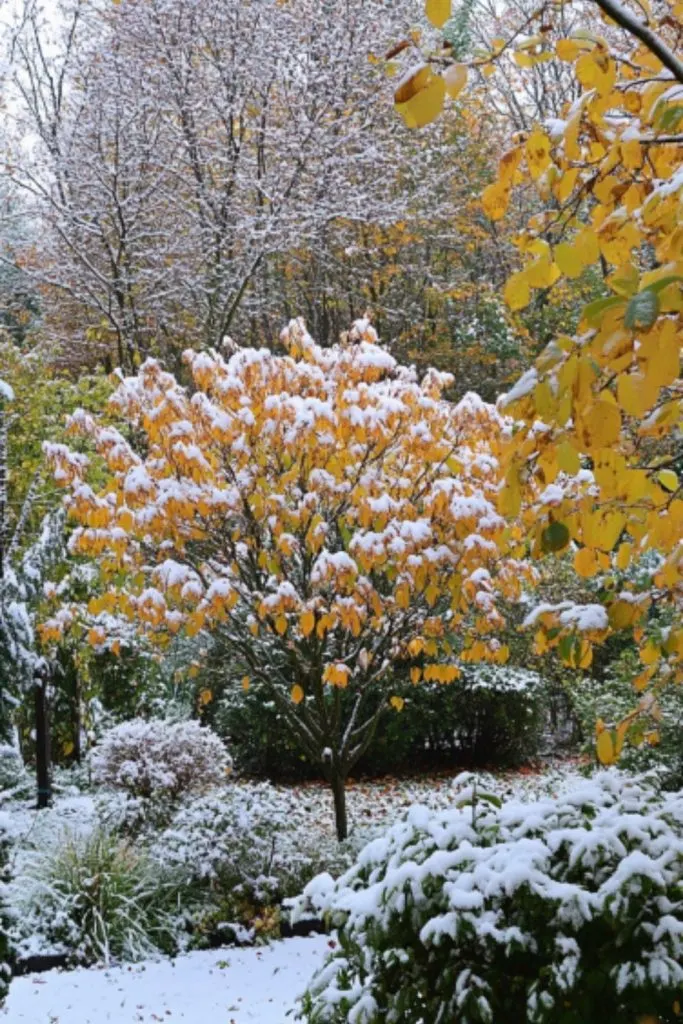
Debates rage over whether to clear your garden or leave plants to break down naturally. While leaving them can provide habitat for pollinators, it can also become a winter retreat for pests.
If you battled a pest infestation this season, it’s best to clear those plants out and compost them (or burn them if pests were rampant).
On the flip side, if you want to support beneficial insects, leave perennial flower beds untouched until spring.
8. Pruning at the Wrong Time
Fall might seem like the perfect time to get pruning – especially when the bare branches make it easier to see what needs a trim. But resist the urge!
Pruning in fall can trigger new growth, which won’t survive the winter cold, potentially weakening the plant.
For flowering bushes like lilacs or camellias, pruning in fall means cutting off next year’s buds. Ouch. Instead, wait until after they’ve bloomed next season to do any pruning.
9. Forgetting to Winterize Your Garden Tools
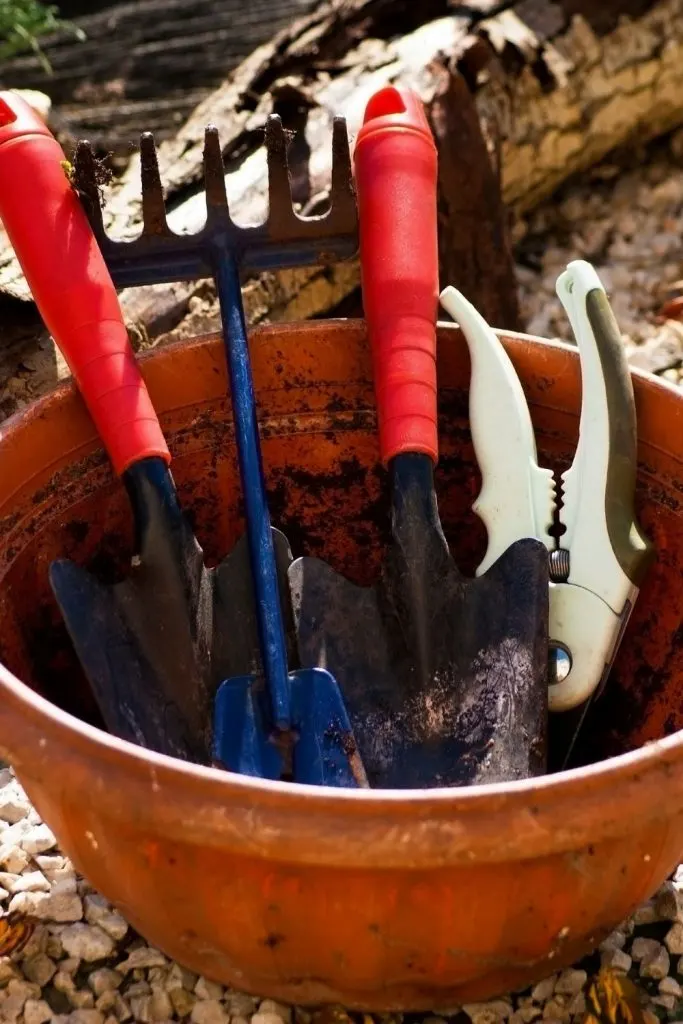
I get it – after a long growing season, the last thing you want to do is spend more time cleaning your garden tools.
But taking a few minutes to scrub them down and store them properly could save you money (and headaches) next year.
A little care now means you won’t be dealing with rusty, dull tools come spring.
10. Leaving Your Lawn Naked
Even if you’re done with the garden, your lawn still needs attention. Rake up those leaves, give it a final mow, and consider overseeding or aerating if needed.
Leaving your lawn naked and unkempt can result in dead patches, compacted soil, and a weedy takeover in spring.
